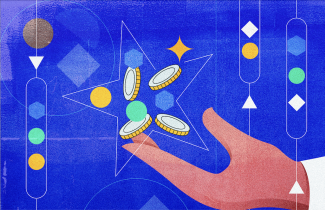Evaluating Risk in the Use of Cryptocurrencies
Leaders of the major global powers gathered in France are interested in controlling the use of virtual currencies such as Libra, but at what level will users be impacted?
The G7 Summit in Biarritz (France) brings with it the commitment of finance ministers of the Group of Seven to leverage strict controls on the Facebook Libra project-the development of a new currency-lessening or removing altogether the risks associated with the destabilization of the global economy. One of the key objectives is to guarantee that virtual currencies will be subject to anti money laundering measures and consumer protection regulation.
The summit host country could be key in deciding the future of Bitcoin, Libra and cryptocurrencies in general. In France, the organizations linked to cryptocurrencies will voluntarily comply with a series of standards regarding capital requirements, consumer protection and the payment of taxes on French territory. In return, these firms will receive the seal of approval of the French equivalent of the Mexican CNMV, the Autorité des Marchés Financiers.
Not all countries maintain the same openess as France in terms of their approach to digital currencies. The US is showing more and more resistance, as the President of the Federal Reserve, Jerome Powell made very clear when he stated that the Libra initiative would not see the light of day until adequate clarification was provided.
A cryptocurrency is a digital medium of exchange. The first cryptocurrency to be released was Bitcoin in 2009, and since then many others have come to the fore, such as Litecoin, Ethereum, Ripple or Dogecoin, each one with different characteristics and protocols.
Cryptocurrency systems guarantee the security, integrity and stability of their balance sheets through a framework of mutually verificable agents(transferring segmented or multisource files) called “miners” The majority of miners are members of the general public who actively protect the network by maintaining a high level of processing of algorithms, with the final aim of receiving a small reward, haphazardly allocated, for their efforts.
Cryptocurrencies have made possible the Internet of Value, also known as the Internet of Money, applications of the internet which permit the exchange of value in this particular form. This value can come in the form of contracts, intellectual property, stocks or generally anything that can have value attributed to it. Previously, value exchanges could take place using payment systems like Paypal. The difference between paying for something with Paypal and paying with a cryptocurrency is that a Paypal payment requires that it be made through private networks such as those owned by credit card companies and banks, while cryptocurrency payments have no intermediaries.
It is key that users of cryptocurrencies recognize the risks of conducting transactions. As a minimum requirement, clear and concise information must be provided to the users of their website or the medium they use to provide their services, taking the following into account:
- Cryptocurrencies are not legal tender and are not supported by central banks.
- Once executed, it is impossible to reverse transactions made in cryptocurrencies.
- The volatility of cryptocurrencies.
- The inherent risks on a technological, cybernetic and fraud level of using cryptocurrencies.
There is no doubt that establishing risk-reducing measures for the use of cryptocurrencies will be one of the themes up for discussion for the G7 experts meeting in Biarritz this week.



